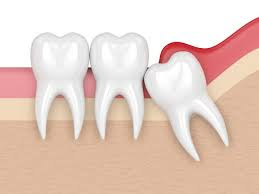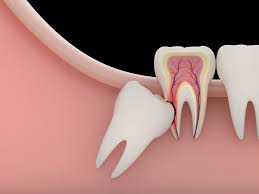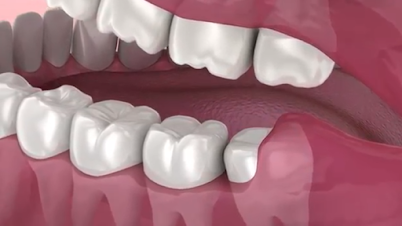Things To Know About Wisdom Tooth Extraction
Removal of wisdom teeth is very painful. Sometimes it also takes a lot of time to come out and due to not being able to get out easily, getting it out of the mouth remains an option. Dental extraction is a serious surgical procedure. When a wisdom molar is pulled out of the mouth, a small pit is formed in its place, which takes some time to fill. In such a situation, dentists often recommend taking good care of it so that the infection does not spread to the teeth and all the teeth can be kept safe.
Read More About: Teeth Whitening Tips At Home
How to take care of yourself at home after removal of wisdom teeth and what are the important things to keep in mind. With these expert tips, you can reduce unnecessary pain and swelling, and also help you avoid the complications of wisdom molar removal, such as infection.
What are the causes of wisdom tooth pain?
There are many reasons for wisdom tooth pain. Let us tell you further.
If the wisdom teeth start coming out in the wrong way, then it causes pain in the gums. If there is any kind of infection in the tooth, it affects other teeth. If not treated at the right time, serious problems can be faced.
Pain in the wisdom tooth can happen at any time. Apart from this, suddenly there is pain in the wisdom tooth.
Wisdom molars usually appear between the ages of 17 and 27. These teeth come out from inside the gums and cause pain by putting pressure on other teeth.
Read More: How To Prevent Damage To Teeth And Wire?
Impact wisdom teeth cause other problems and pain.
Developing gum disease.
To cause decay in the wisdom tooth compared to other teeth.
Impacted wisdom teeth cause damage to other teeth.
The cyst means that the wisdom tooth develops a membrane within the jaw bone. This is the fluid-filled sac that makes up the cyst. It affects the nerves and bones of the tooth. Due to this food particles get stuck in the wisdom teeth and cause infection.
What are the symptoms of wisdom tooth pain?
A wisdom tooth may not necessarily cause pain or cause symptoms, but when an infection occurs in a wisdom tooth, it damages other teeth. In such a situation, there is a problem related to the teeth and symptoms start appearing.
The wisdom tooth is located behind the chewing tooth, so pain is experienced in the back. Apart from this, there is a lot of pain to be faced if the wisdom teeth come in the wrong way.
There is swelling and redness at the site of the affected wisdom tooth. Due to the way of chewing food, some people get hurt in the jaw and there is pain in the wisdom teeth and there is difficulty in opening the mouth and eating.
In most people, there may be swelling in the tip of the jaw at the time of wisdom molar pain. As the problem progresses, other teeth and gums are affected. In such a situation, swelling in the mouth, swelling in the face, sinuses, near the jaw etc.
The wisdom teeth are located in such a place where it is very difficult to clean. As you know, the wisdom teeth are located inside the gums. The bacteria tend to stick around the wisdom teeth and spoil the taste of the mouth.
Diagnosis of Wisdom Tooth Pain
In case of wisdom tooth pain, the doctor performs the following tests. In which asks questions related to teeth and examines teeth. If the wisdom teeth are crooked, then the doctor recommends an X-ray of the tooth to see the condition inside. Apart from this, X-rays are also taken out in other dental problems. If after accurate detection of tooth presence in X-ray, send it to another doctor for surgery involving the mouth.
Surgeons take out your wisdom teeth to save you from severe aches and pains. Recovery is quick in adults and recovery may take some time in older people.
What is the treatment for wisdom tooth pain?
There is no need for treatment if there is no pain in the wisdom tooth, but treatment is done when there is pain. If there is a general symptom then it is cured through medicine. However, some doctors recommend removing the wisdom tooth so that there are no further problems.
It is very difficult for the dentist to make a path because impacted wisdom teeth do not cause problems at first but can cause problems later. To avoid the risk of other problems, the person should get the dental check-up done on time.
When there is a complex problem with the wisdom tooth, the doctor performs a surgical procedure to remove the wisdom tooth. In this procedure, you do not have to stay in the hospital for a whole day but it can be done in a few hours. However, in the following cases, wisdom teeth need to be removed.
E.g. Tumors in the wisdom teeth, damaged teeth near the wisdom teeth, gum disease or infection, protruding wisdom teeth, etc.
Keep these things in mind
According to Cosmodontist's dentist, who charges reasonable invisalign cost in Gurgaon, explains that after taking the wisdom tooth out of the mouth, one should avoid touching the wound area.
Do not wash the inside of your mouth vigorously and do not apply too much force while rinsing.
If you feel pain, apply an ice pack to your cheeks outside the surgery site.
Remove the gauze surgical pad 30 minutes after your surgery.
Take pain relievers prescribed by your dentist as soon as you start feeling discomfort.
What should you eat?
It is important to stay hydrated and eat well in order to recover, although not having a great appetite because of the pain immediately after surgery. Ask your dentist for specific instructions on what you can eat in the first few days after your recovery. For a few days, think about a food that is easy to eat without chewing and a food that will not disrupt your blood clotting or stitches. Start with very bland foods like soups, smoothies etc. Avoid eating very hard foods and eating extremely hot foods that can burn the surgery site. Do not consume any type of nuts or seeds that may get stuck in the hole at the site of the wisdom tooth.
Read More About: Do you have the gap between your teeth? Here is the simplest way to correct
Dental hygiene is essential






Comments
Post a Comment